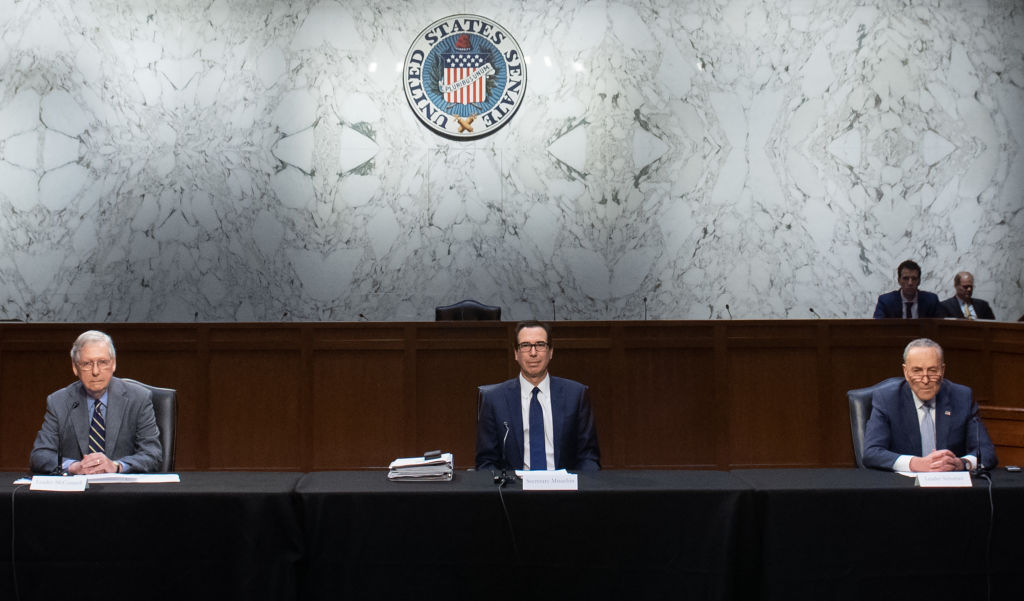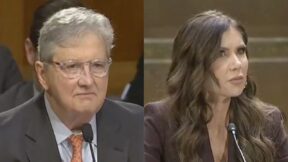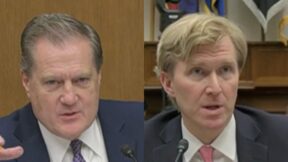White House, Democrats Reach Tentative Deal on $2 Trillion Coronavirus Stimulus Bill

Photo credit: Saul Loeb, AFP via Getty Images.
After a marathon negotiating session, the Trump White House and Senate Republicans struck a deal with Congressional Democrats just after midnight Wednesday on a $2 trillion coronavirus stimulus package, the most expensive piece of legislation in U.S. history.
According to the New York Times, the three parties finally came to an agreement on this third round of emergency funding for the coronavirus-fueled economic implosion after resolving a major sticking point about the administration of a proposed $500 billion bailout fund for struggling industries. The White House’s original plan would have given Treasury Secretary Steven Mnuchin sole oversight of how the monies were disbursed. Dissatisfied with such a consolidation of financial largesse, Senate Democrats, led by Minority Leader Sen. Chuck Schumer (D-NY), negotiated an outside inspector general to oversee the fund and a five-person Congressional panel.
To reach President Donald Trump’s desk for signature, the bill would first proceed to a vote in the Senate, which could approve it swiftly. However, the House is still in scheduled recess and could not pass the bill unless by unanimous consent. That procedural move has risks, however, as a single member of Congress could object and stop the process, forcing all House members to return to the Capitol for an in-person vote — and possibly demand additional changes to the legislation.
As part of the compromise, Democrats also pushed into the bill a vast unemployment insurance benefit, which would cover furloughed employees as well as contract and freelance workers, adding as much as $600 a week to each state’s normal unemployment payments.
The bill also includes the much-touted, one-time direct payments to citizens of as much as $1,2oo per adult and $500 per child, using a progressive, pro-rated scale based on 2018 taxes.
In addition, there are numerous other tranches of money for small business loans ($300 billion), local and state governments ($150 billion), and hospitals ($130 billion).
New: The Mediaite One-Sheet "Newsletter of Newsletters"
Your daily summary and analysis of what the many, many media newsletters are saying and reporting. Subscribe now!






Comments
↓ Scroll down for comments ↓